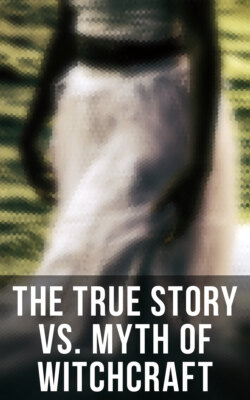Читать книгу The True Story vs. Myth of Witchcraft - William Godwin - Страница 84
На сайте Литреса книга снята с продажи.
The Magi, or Wise Men of the East.
ОглавлениеThe Magi, or Wise Men of the East, extended their ramifications over Egypt, Babylonia, Persia, India, and probably, though with a different name, over China, and indeed the whole known world. Their profession was of a mysterious nature. They laid claim to a familiar intercourse with the Gods. They placed themselves as mediators between heaven and earth, assumed the prerogative of revealing the will of beings of a nature superior to man, and pretended to show wonders and prodigies that surpassed any power which was merely human.
To understand this, we must bear in mind the state of knowledge in ancient times, where for the most part the cultivation of the mind, and an acquaintance with either science or art, were confined to a very small part of the population. In each of the nations we have mentioned, there was a particular caste or tribe of men, who, by the prerogative of their birth, were entitled to the advantages of science and a superior education, while the rest of their countrymen were destined to subsist by manual labour. This of necessity gave birth in the privileged few to an overweening sense of their own importance. They scarcely regarded the rest of their countrymen as beings of the same species with themselves; and, finding a strong line of distinction cutting them off from the herd, they had recourse to every practicable method for making that distinction still stronger. Wonder is one of the most obvious means of generating deference; and, by keeping to themselves the grounds and process of their skill, and presenting the results only, they were sure to excite the admiration and reverence of their contemporaries. This mode of proceeding further produced a re-action upon themselves. That which supplied and promised to supply to them so large a harvest of honour and fame, unavoidably became precious in their eyes. They pursued their discoveries with avidity, because few had access to their opportunities in that respect, and because, the profounder were their researches, the more sure they were of being looked up to by the public as having that in them which was sacred and inviolable. They spent their days and nights in these investigations. They shrank from no privation and labour. At the same time that in these labours they had at all times an eye to their darling object, an ascendancy over the minds of their countrymen at large, and the extorting from them a blind and implicit deference to their oracular decrees. They however loved their pursuits for the pursuits themselves. They felt their abstraction and their unlimited nature, and on that account contemplated them with admiration. They valued them (for such is the indestructible character of the human mind) for the pains they had bestowed on them. The sweat of their brow grew into a part as it were of the intrinsic merit of the articles; and that which had with so much pains been attained by them, they could not but regard as of inestimable worth.
